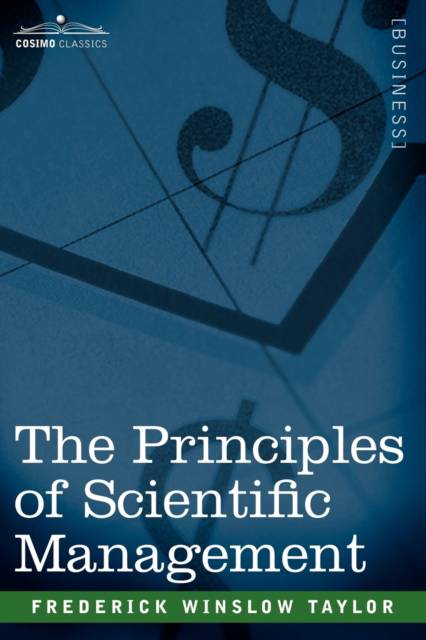
Bedankt voor het vertrouwen het afgelopen jaar! Om jou te bedanken bieden we GRATIS verzending (in België) aan op alles gedurende de hele maand januari.
- Afhalen na 1 uur in een winkel met voorraad
- In januari gratis thuislevering in België
- Ruim aanbod met 7 miljoen producten
Bedankt voor het vertrouwen het afgelopen jaar! Om jou te bedanken bieden we GRATIS verzending (in België) aan op alles gedurende de hele maand januari.
- Afhalen na 1 uur in een winkel met voorraad
- In januari gratis thuislevering in België
- Ruim aanbod met 7 miljoen producten
Zoeken
€ 10,95
+ 21 punten
Uitvoering
Omschrijving
It seems, at first glance, like an obvious step to take to improve industrial productivity: one should simply watch workers at work in order to learn how they actually do their jobs. But American engineer FREDERICK WINSLOW TAYLOR (1856-1915) broke new ground with this 1919 essay, in which he applied the rigors of scientific observation to such labor as shoveling and bricklayer in order to streamline their work... and bring a sense of logic and practicality to the management of that work. This highly influential book, must-reading for anyone seeking to understand modern management practices, puts lie to such misconceptions that making industrial processes more efficient increases unemployment and that shorter workdays decrease productivity. And it laid the foundations for the discipline of management to be studied, taught, and applied with methodical precision.
Specificaties
Betrokkenen
- Auteur(s):
- Uitgeverij:
Inhoud
- Aantal bladzijden:
- 86
- Taal:
- Engels
Eigenschappen
- Productcode (EAN):
- 9781596058897
- Verschijningsdatum:
- 1/10/2006
- Uitvoering:
- Paperback
- Formaat:
- Trade paperback (VS)
- Afmetingen:
- 152 mm x 229 mm
- Gewicht:
- 136 g

Alleen bij Standaard Boekhandel
+ 21 punten op je klantenkaart van Standaard Boekhandel
Beoordelingen
We publiceren alleen reviews die voldoen aan de voorwaarden voor reviews. Bekijk onze voorwaarden voor reviews.









